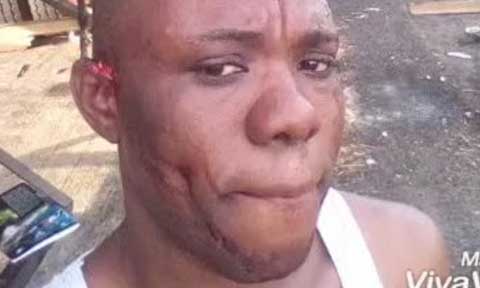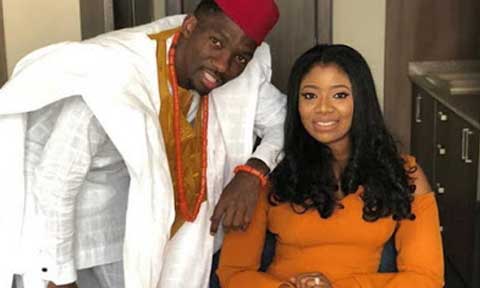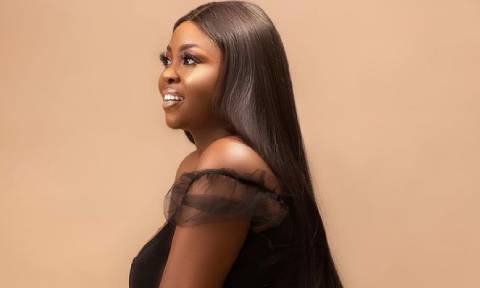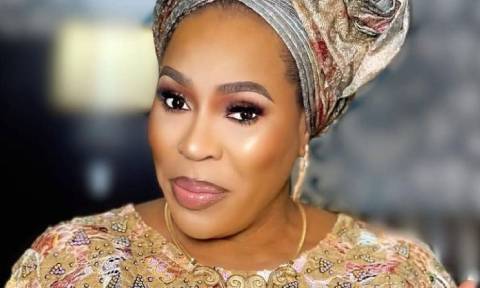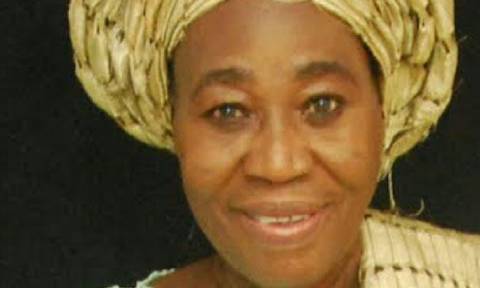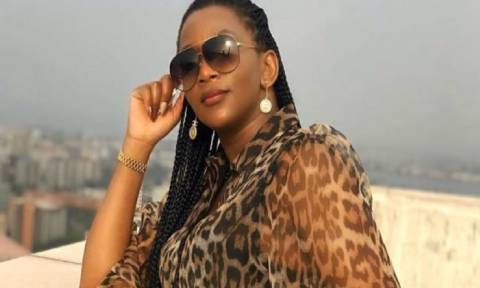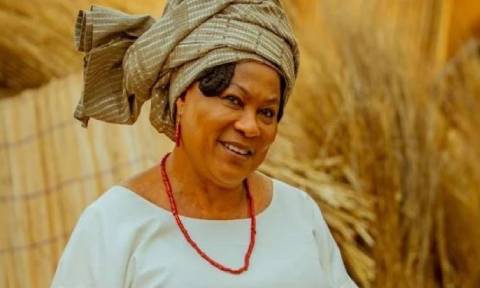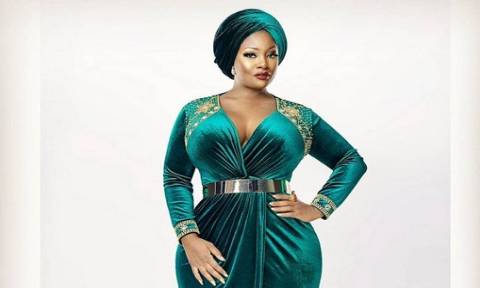Omotola Jalade: I Started Hustling At 15 To Take Care Of My Brothers & Mother. See excerpts of Omotola Jalade’s latest interview with Adedayo Odulaja.
There are widespread insinuations about discrimination in Nollywood. Have you experienced any form as a person?
As a person I haven’t but I am not going to pretend I don’t know it exists. On what basis will they want to discriminate against me? Because I’m a woman? I don’t know or I guess I didn’t see any basis for it or maybe they had and I don’t see it as discrimination. Or they tried and I didn’t notice.
Would you say you started your career in Nollywood with a bang?
Yes, because from my first movie I did a lead role and luckily from my first movie, I was already famous in the industry. Not famous in the society because in those days unlike now which is the era of social media, some people are actually more famous in the society but not known in the industry yet and that’s because they are already famous on social media and stuff. But in those days, you had to be very famous in the industry, everybody had to really know you and then respect your craft before the society would get to know you. I already had some kind of critical acclaim among the people that matter, so I started out like ‘that’s the girl to watch out for,’ I guess that’s a bang.
Which movie did you start with in this manner?
That was Venom of Justice that I eventually did but prior to that, I had opportunity to do other ones but my mum didn’t let me because whe was worried about all the talk then about the arts belonging to or being entered into by prostitutes. She didn’t want me to be put in that category or get derailed, so I couldn’t do the earlier ones but then I got to do Venom of Justice.
Were you able to prove your mother wrong before she died?
Absolutely. She died in 2001 and so I think at that time I had done that. She was very proud; she felt at that time that I was the matter.
Did you have any strategy to avoid the things that would have bothered her?
Well I wasn’t that kind of person anyway but it was hard for her to think I wouldn’t be swayed. I was young when starting out, I started out at the age of 15 after I left school and got straight into the entertainment industry so naturally I could understand why she was very apprehensive and worried about me joining the industry.
Then the image was not good, there were not many good examples unlike now where you have many role models that you can point at and say ‘this or that person is doing well’ so she was very scared.
But the inside of me was not that person who was going to be easily swayed away; I am a very strong person and I know exactly what I want. And what I wanted then was just to help,that’s the truth, I really just wanted to help my mum but she didn’t see it that way. She knew I was trying to help her but she was also scared and trying to stop me.
What were you trying to help her deal with at the time?
I wanted to help her because I had lost my dad and I knew very quickly that life had become very terrible and things had taken a down turn from when my father was around. I finished on scholarship and my younger brothers didn’t have the same opportunity and I knew their school fees were expensive and needed to be paid. As a child, she didn’t want me to carry that burden with her; she wanted to prove that she could do it alone but I could see clearly that she couldn’t do it alone. Also my father’s family were also putting pressure on her that I was going into this industry and I would do this and become that. So all that pressure mounted on her and she mounted it on me so all I just needed to do was stay true to who I was inside and stick with my mission and vision.
Does that mean there was pressure to prove her wrong on your side?
Quite honestly, no. Of course it was at the back of my mind that I didn’t want to let her down but I don’t think that would have been enough if I really wanted to go crazy. As far as I was concerned, the most important thing was to provide at that time, so being afraid of her or wanting to prove her wrong was not going to be enough to keep me on the lane that I wanted to be.
Of course it was a reminding factor as well but I just don’t think it would have been enough, the main thing was that I was lucky enough to give my life to Christ at same time, so I had that Godly influence at that time. So without a doubt, my saving grace was giving my life to Jesus Christ at that critical time because then my entire thought process was guided from then on by that.
Nollywood was far from being this developed back then so what made you feel you could help when money wasn’t really there then?
The thing about Nollywood is that it’s very addictive so when you get into it even if you were never really that interested, you just get carried away. It just takes you away except you are truly not supposed to be there. But if at least averagely, for example, you are meant to be around or something you would just find yourself getting deeper into.
I always wanted to be a singer, really not even being an actor, funny enough. But I started out with acting because that is what fell on my lap so for me it was pretty much about wanting to conquer. I started out very hungry for perfection; I’ve always wanted to be a perfectionist so when I started out, I started to investigate things and how I could make them better.
I have always been very competitive, but not with others; with myself. I’ve always wanted to be the best, I possibly could be so I have always been thinking on how I could make it better and be more. I think that drive and that hunger kept me going; the desire to work harder, exert myself more, look at how it’s done in other climes and fashion my own career in that light. It was very hard because there was a lot of resistance but here we are.
You said you acted lead in Venom of Justice but what movie after that did you do that reinforced the fact that you had become the star you wanted to be?
Mortal Inheritance, by a long shot. Prior to that time, I did a movie called Flaming Passion and I think it was that movie that gave me a kind of notoriety because even though people knew me before then, they were really people that matter – the likes of Zeb Ejiro, Fred Amata, you know the key directors and so on but among fellow actors in the industry, it projected me a lot.
There was another movie we were supposed to do that ended up not being shot, it was called African Queen and Mike Okri was part of that. People came from all over Africa for that audition, the type of auditions you have for reality shows like Big Brother nowadays. It was an international movie kind of but they never shot that movie but imagine thousands coming for an audition like that and then you eventually get picked and that was exactly the same time I shot Flaming Passion so that gave me the solid confidence then but Mortal Inheritance made me known to the public.
You said meeting Jesus Christ helped you to stay focused. Would you say getting married early also helped?
Indirectly, not directly in the sense that my husband did not say ‘don’t go here, don’t do this’ or because of marriage I didn’t do this or that but in the sense that naturally I had more responsibility. So even the little exuberance that one would have indulged in, you won’t even have the time. I’d say it indirectly sharpened my vision and you have to remember immediately I got married, I got pregnant. It wasn’t like I had three years to do nothing and be thinking of my life. No, I had a baby on the way and so I had to take care of my kid, so naturally my cares, my worries and my attention were in a different place entirely.
I have always been responsible in the sense that I took care of my two younger brothers like my children. I was their mother and their dad sometimes so for me it was not like it was any different mindset-wise. It was who I already was inside but with this now, it was my own personal family but even at that I started my married life with my two younger brothers with us.
Even though my mother was alive and it was not like she was living in a rented apartment; she was living in our own house but my two younger brothers moved in with us so that tells you how much responsibility I was carrying from an early age. And so I had so much on my plate to think of frivolities, it also just was not my thing.
I’ve never, even while I was in secondary school to be honest, been one to be that way. I’m not even a girly girl, till now I don’t care about make-up really, I don’t care about jewellery really, I am not likely to be at a forum where they are talking about shoes, bags, those are not things I care about. I have always been one into things like properties, cars, I am like the tom boy personality.
Without dwelling on the controversy of whether it was 20 years or more, how did you feel during the anniversary events of Nollywood a little over two years ago?
I felt very happy to be still be here first and foremost, that’s the first part that occurred to me. The fact that we can celebrate this milestone and I can say I practically started with this industry and I am still here, not like the celebration is on and I am dead or far away in another career.
I am still here and by God’s grace I am still relevant, it was with such a good feeling. Secondly, it was a wake-up call. Before that time, I already withdrew from the industry for a while and that’s because I wanted to go and start focusing on infrastructure and I started talking to a lot of my colleagues and other people because I had talked to a lot of people, not just industry people in Hollywood but even business heads that can actually invest. I don’t want to do a movie but I talked to them on behalf of my industry, telling them there are great filmmakers they can collaborate with.
I spoke to Bank of America, I’ve spoken to Steven Spielberg, such people on a one-on-one basis, even studios and one thing kept coming up consistently, which is that we have no structure. Once this kept coming up, I knew it was time to get started and the way I know how to do things is to lead by example really. I don’t like to just talk and not act so I withdrew and I said I would go and invest. So I started investing in properties to start a film village and we have about 20 plus acres now in Badagry and I bought another property in Ikeja, Mobolaji Bank Anthony, these cost a lot of money and a lot of time to even secure them, especially the one in Ikeja which is right in the heart of the city. It took time but because I am a very passionate person I knew that if I was acting, I’d be distracted so I had to get away and focus on that.
That’s when the cinemas started coming in, I am very close to Kene (Mkparu), Ben Bruce is pretty much my uncle and as all these people were coming in, I felt it was part of my job at this place in my career to try to show people these things are there and telling people ‘you can come in, it’s not so scary. There are business people like you around already, if it was really bad, they would not be involved right now.’ Shooting movies right now is so difficult, even with the really established studios or production houses, something as basic as putting into a contract what percentage my royalties would be is such a Herculean task that they see you as being difficult.
You tell big production houses that ought to know and they want to victimise you for bringing something of that nature up. It is ridiculous and I keep trying to make them understand that it is not about me, it’s not about Omotola but about the fact that you are running an industry that tomorrow has no hope, period. We are all squandering everything today, there is no tomorrow because you are not having an opportunity to expand.
For example, if Universal Studios wanted to come invest, they are not stupid so they are going to look at your books. I did something with Universal Studios/BHI called Hit the Floor and I couldn’t sign a contract to work on that project even though they wanted me.
Because I did not have insurance, I wasn’t part of the guild over there (Screen Actors Guild), I had not written to them to tell them all my requirements for my long term. I don’t know if you get it, like they should be happy that I am coming baggage-free and we would just pay her one stipend and we all go away but they know what they could lose in the long-run because that’s how they are structured, the documents have to be out in place. It is not the 2% you want to collect today that is going to cause problems for them in their books tomorrow. But here, people don’t see long-term.
One of the biggest recognitions to have come the way of Nollywood through an individual was your recognition by TIME Magazine? What does this mean to you?
It means so much in my career, it was in 2013 but till now I would say it is still new. It feels like I won every year. Not only did it take my career to a different level; it validated my career and brand, not even locally, that’s what many people don’t realise. People don’t understand the gravity of what it means to be on the TIME list in Africa that much, it is when I step out of this continent that I appreciate it more. I don’t even want to mention names, I have had some major people call me, invite me for things simply because of that and I am talking of people that have probably not been on that list but who in my own opinion are world leaders or such.
Immediately they see you, they give you a certain kind of respect because they know you were well researched, how deserving it is. There are people who are on that list for very terrible reasons but I wasn’t on it for a terrible reason, thank God. So if you are on it for a good reason, it must be a very good reason. It’s not a normal list; it’s either you are very bad or very good and the point is out of the whole world, they found 100 people who are doing something extreme at that time and that’s the gravity of it and I hope I will win it again because you can actually win it more than once. So while people are still hung up on the fact that I won one, I am thinking about again which is what it means when they say lightning strikes twice. That’s w h e n I would feel like yeah, I am grateful I won it once but my goal is to get it again.
Do you also see that as recognition for Nollywood apart from being about you?
Absolutely, I tell you what with all sense of humility: the first time Steven Spielberg ever heard about Nollywood was because of that. It could have been me or anybody else but the point is where do you see him? Daniel Day- Lewis is a recluse, you can’t find that man anywhere, Hollywood doesn’t even see him but the first time he also heard about Nollywood was because of that recognition.
And they were stuck on listening and trust me, you know I can talk, so I made sure I took their entire time in that gala to preach Nollywood and even if it didn’t yield anything immediately, it is a great seed because immediately I was talking, he started Googling and he was stunned with what he found and then he was asking me some questions which like I said earlier bother on structure, tax-relief, actors being certified and stuff like that.
Now he can never deny he has not read about Nollwyood and happily it was in good volume so I think it was a win for Nollywood. And if you had gone to the gala that day, this is not even a secret; my picture was the highlight picture of the event. I got into the gala and I got scared because it was a little bit too much. Like you had people from all around the world, presidents of countries including the United States and their pictures were on the wall like that and my picture was there as the major highlight. I don’t even think it was about me personally.
You were involved with somewhat collaborative project between Hollywood and Nollywood not so long ago, Ije. Would you say that exposed Nollywood to a wider market?
I am not very sure about exposing Nollywood to a wider market; I am very sure it was a turning point for me, mentally. After we did that and how much this young girl, people actually forget Chineze was both new and very young. She had just left school and it hit me that it is possible. It is not like it hadn’t been done before but not in that scale in recent time.
The older generation, going as far back as Ogunde, had done things of that nature but talking about our own generation of Nollywood as at then, nobody was doing that on that scale. And it was a full-blown production that was even more there than here and so I think it became real to me that this is possible. It refocused and sharpened my vision, immediately I came back from that movie, a lot of things changed. That also snowballed and helped Nollywood in a lot of ways because after that I stopped doing Idumota or what you call Asaba movies.
Once I got back from that movie I never did any of those and after a while, other actors followed suit, that’s how we are and I think that is one of the things that have given birth to the cinema culture today. Even though there was the cinema culture before then but it was just crawling but when the lead actors decided to only exert themselves in cinematic movies, it helped everyone to start to rethink and project this more and start to promote this more. I can say Ije did that because it had two of the strongest personalities in Nollywood.
Ije has been deservedly praised but how was a person as young as Chineze Anyaene able to convince you to star in the movie?
Not hard, all I just needed was for her to send me something she had done before, I’m always very open to new people but you have to prove you are worth the while. So she came and talked to me and luckily she was introduced to me by Zeb Ejiro who is like my godfather and someone I respect a lot in this industry.
[By Saturday Telegraph]

